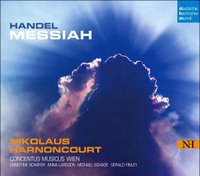If, as I said in my first post, there is a new blog initiated every second, why do it? What is the point? The reason I haven’t done it sooner is the consideration of the possible pompous vanity, typing out little thoughts in the sanctity of my home under cover of night and presuming that others will follow, sharing my broad opinions about breakfast cereals and incisive political viewpoints as if people cared. However, there actually are compelling reasons why composers (or artists who aim high in general) should get “on the air” and speak to the teeming untold. Simply put, pop culture is replacing the so-called “lively arts” in the vast, vivid consciousness of America. Not a good thing or a bad thing, but an unimpeachable truth. We composers are prone to lamentations, the sad refrain of unrequited love, but we do not suffer alone. I am certain that even someone with a broad cultural appeal like a Bjork or a Rick Moody or a Laurie Moore—purveyors of “high art” that many outside of their genre know and respect; successful souls both artistically and financially—feel the same pull of the at-large media as does the poor composer toiling in icy obscurity. I would say that only artists like, say, David Lynch or perhaps Quentin Tarantino, who are of an independent spirit yet able to reach millions with their work, have little to complain about—and I am certain, late at night when they are faced with their own truths, they feel this disconnect as well.
So as “high art” ebbs (temporarily, I believe) what we need more than ever are voices and documentation, even if this is unpaid work, largely unnoticed, the collective shriek of voices crying in the wilderness—even if they only cry to one another. Classical critics agree about the shrinking coverage of this music; therefore, with limited range, they become, in the best of circumstances (and certainly not by choice) stentorian cheerleaders, soldiers trying to persuade, unable to engage matters in any depth because a surface-scratching is all editors feel people can handle, true or not. As a critic myself, I find that I am often told to “dumb it down,” to speak to the common man only, lest what I write be perceived as “academic.” And, so I’ve been told, the common man will never consult a dictionary or Google something, despite the vast resources available.
We compete with any number of more immediately sexy things for the time of the (imaginary)aesthetic swing voter (apparently the longest anyone will read an article online is 18 minutes, so get to the point!), including sex. A new string quartet by Henze is no match for the season premiere of
The Sopranos or the next installment of the
Star Wars sexology, even to those like myself who are invested in Henze. So as coverage declines, interest dwindles concomitantly—a “chicken and egg” scenario, but look around and you will see the results—and the so called “high-arts,” aching for love, fame, money, cultural viability and an earthly presence aside from the fringe, inevitably push toward the popular. After all, we just want to be loved too. This breeds less originality, more white noise.
So without coverage, with envy running hot, and with so many of us hoping we can break this pattern by drifting ever downward to the masses, posterity will reflect strangely on our time—a period of incredible productivity, constant invention, an increased and ever-brilliant creative class, and important work in all disciplines even if nobody is there to consume it. But look to the surface—that being The
New York Times and the like—and the musical world of these days will read, to future generations, as a nexus of Mozart sonatas, Mahler symphonies and tarted up
Traviatas. Look to the grassroots groundswell of us bloggers and this is in fact a golden age, with so much fascinating and resonant work being done in all corners, on all fronts, and by a voulenteer army. Few bloggers get paid; few composers get paid, at least in any sort of commensurate way. For once, we are all on the same side. These blogs are upturned stones beneath which teems a whole colony of “under the radar” productive minds with live hands and good hearts. History will benefit from all of us—so join, blog, raise awareness, show posterity what we are and were. Fight.












